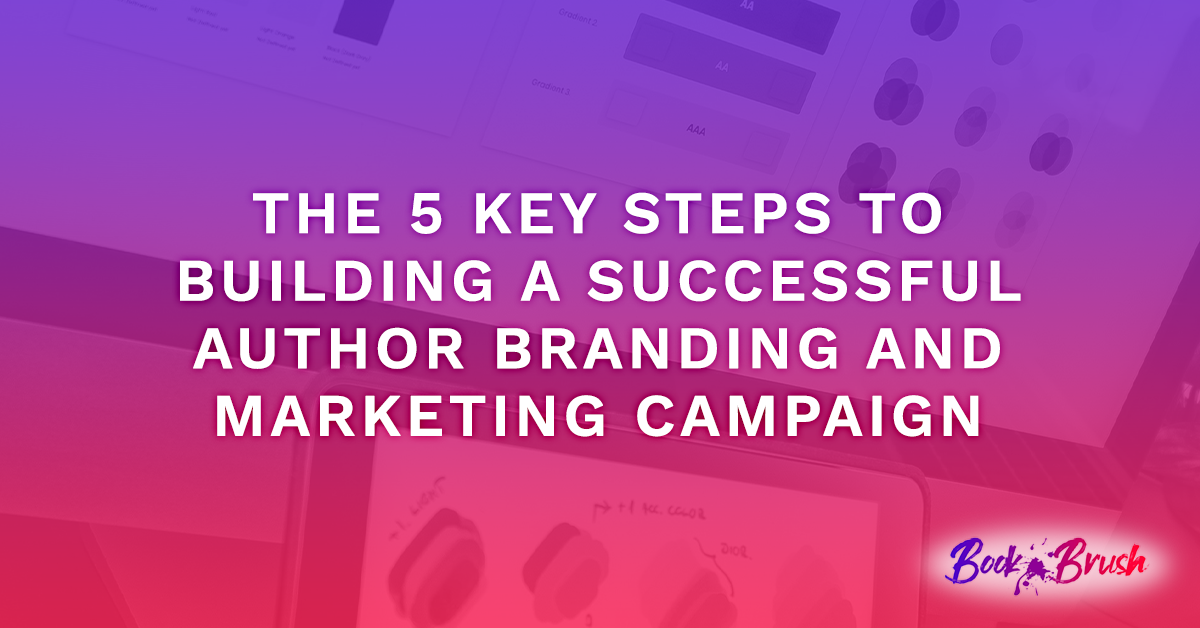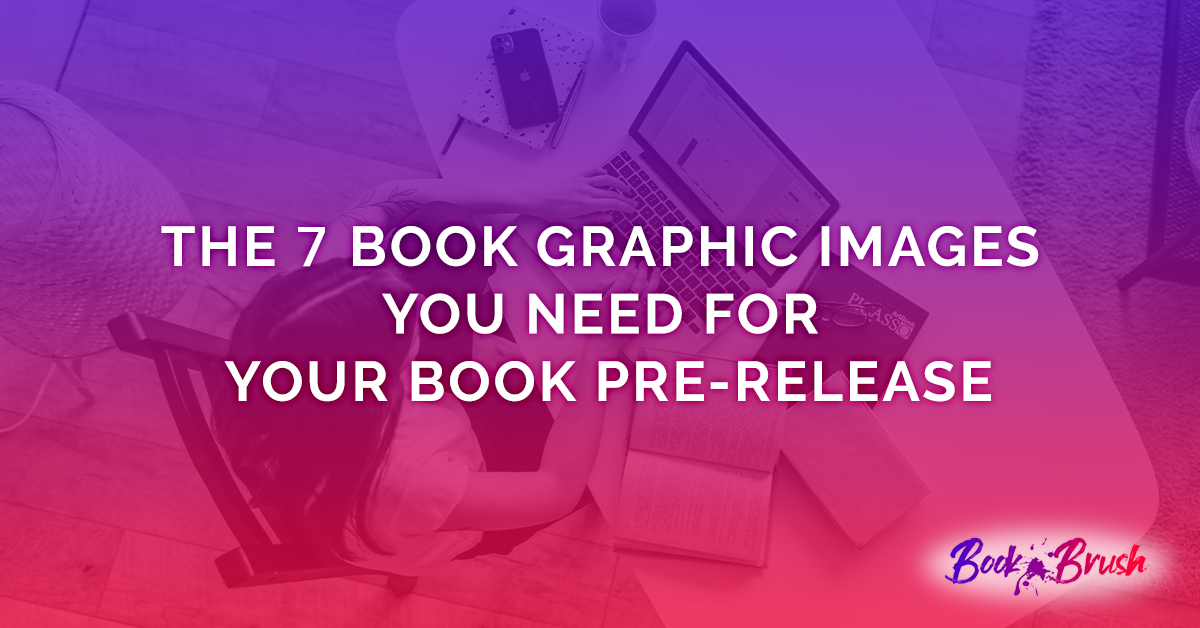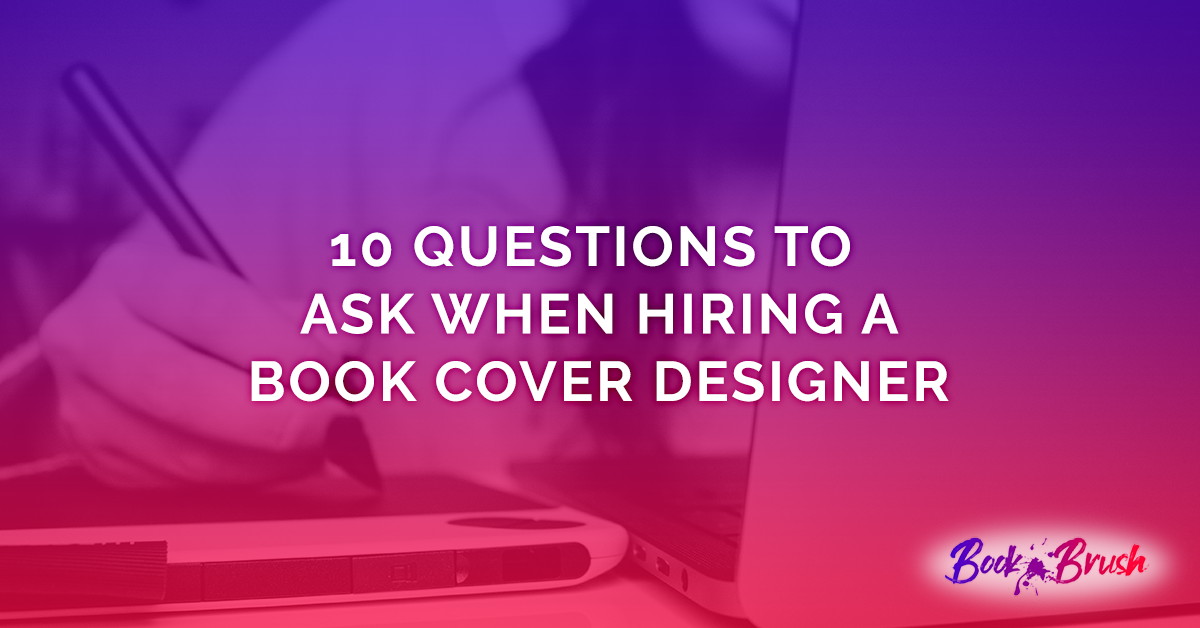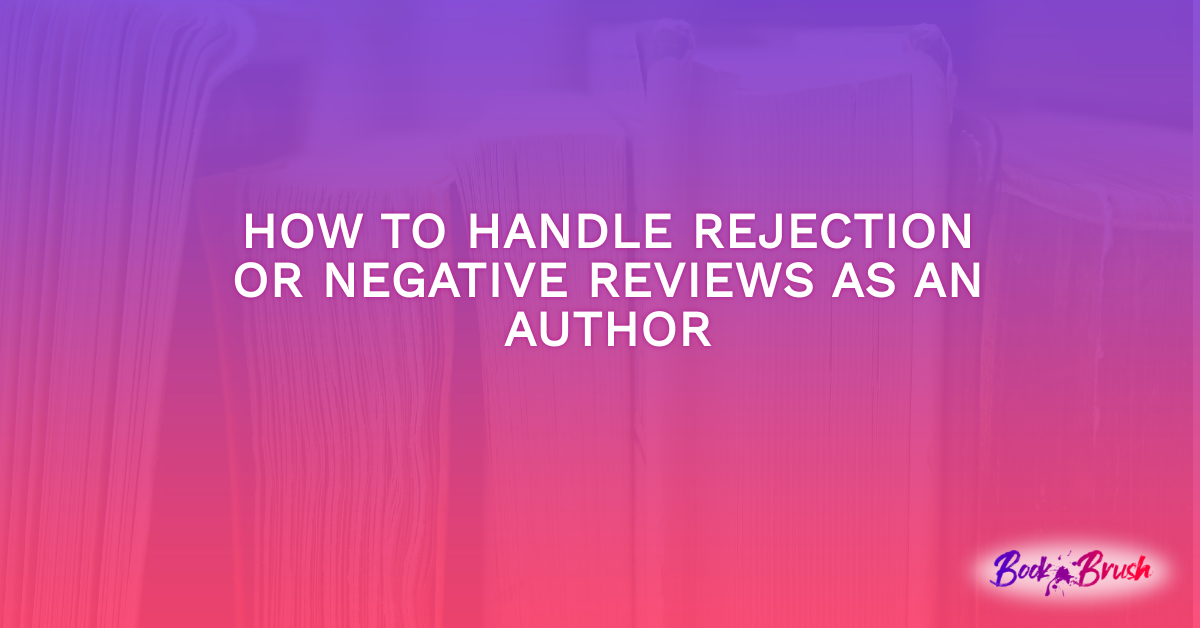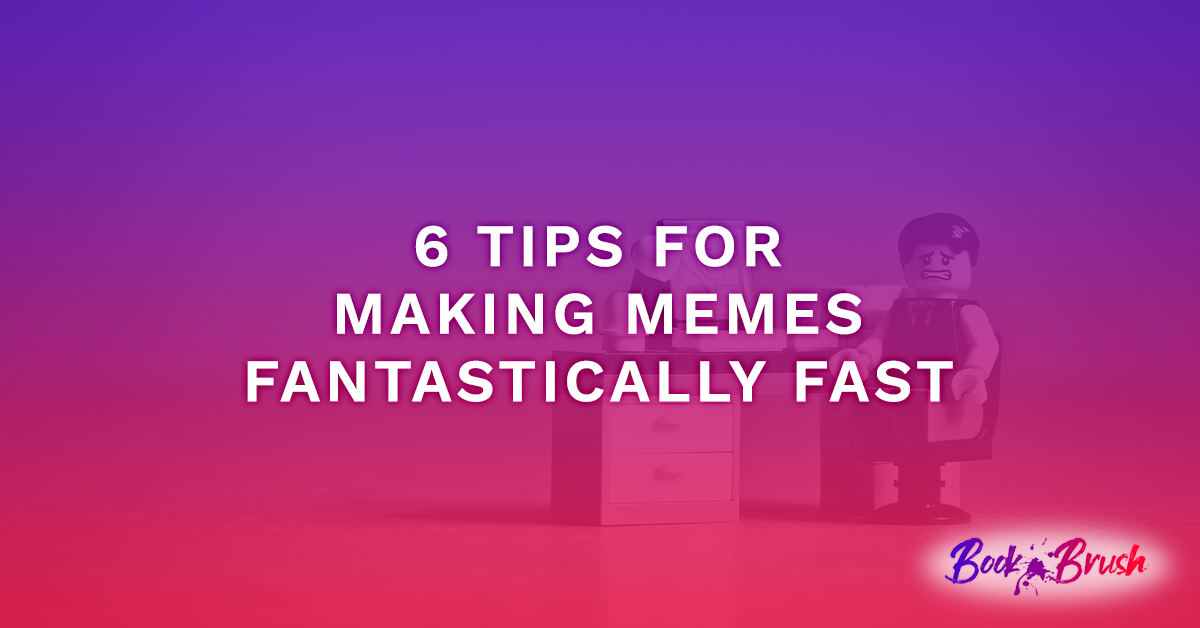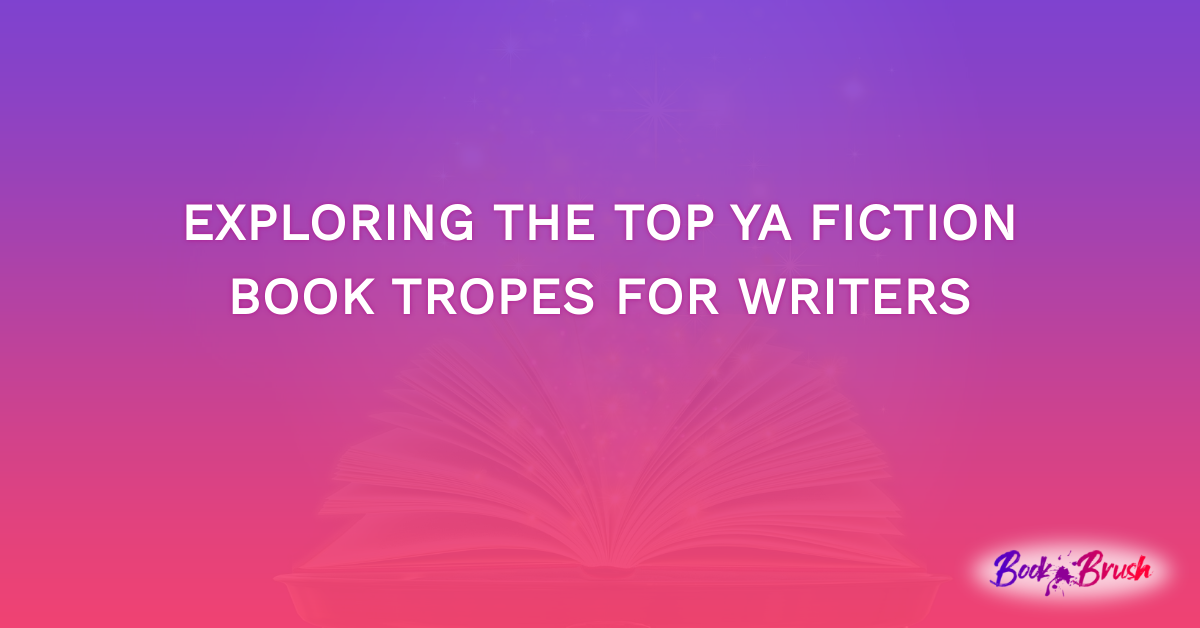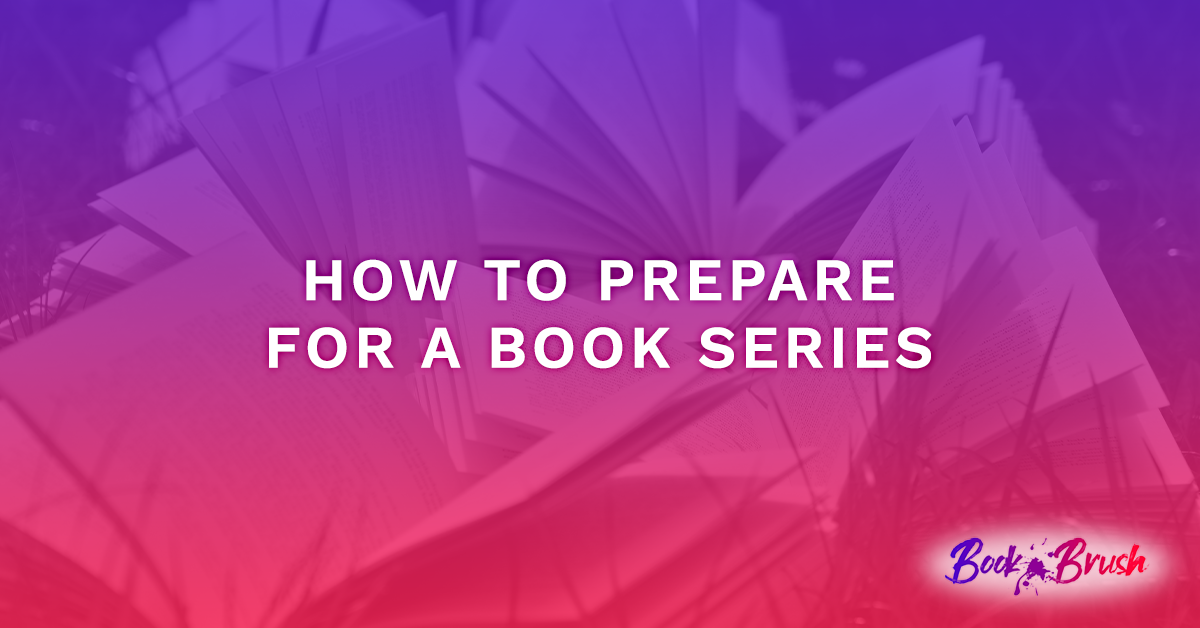![Image of a struggling writer for Christina Kaye's post on 5 key Steps]()
Every author I know has struggled, at one point or another, with how to effectively market their books.
So, as an author coach for over a decade, I decided a few years ago to learn all I could about what works and what doesn’t when it comes to book marketing strategies.
And while it would take much more time than I have writing this article to run through all the critical elements of a marketing campaign that actually works (you can read more about that here), I decided to approach it from an angle that tackles the most crucial error most authors make. And that is not starting off on the right foot early enough in the process.
What exactly does that mean? In my mind, there are two parts to the answer to this problem.
- You must build and begin growing your author brand from the very start of your writing journey.
- You must start using your author brand to engage with followers and convert them into eager buyers.
But building an effective author brand requires much more than picking a color scheme and writing a catchy slogan (though, those are necessary elements). Authors should be much more intentional about designing their brand, and this process should start the moment you are certain you’re going to publish…even if you’ve just begun to write.

It’s true. And I’ve included some of my best advice on building an effective brand identity that you can use to begin your early marketing campaign in this post, broken down into the 5 most crucial elements that will help you increase your visibility and reach more readers with your next book.
Step 1: Identify the WHY behind your writing journey
Before you start building a marketing strategy, you must first have an established and unique author brand. And before you can start building your brand, you must first ask yourself this question:
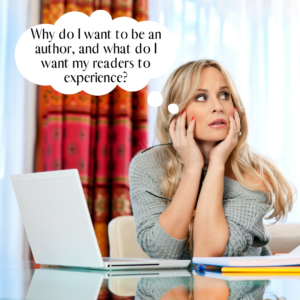
Knowing your own personal WHY will allow you to build a much better and more impactful brand because if you can communicate that WHY to your followers, they’ll be better able to connect with and relate to you.
For example, I write suspense novels that feature strong, sometimes stubborn female protagonists, each of whom have overcome some sort of personal struggle, which makes them a badass detective, sleuth, attorney…fill in the blank.
And I write these stories because I’ve overcome quite a few personal obstacles in my life, so not only can I relate to these characters, so can many women who read my books.
That’s why my brand and my marketing all center around the theme of overcoming your personal struggles and becoming your best self, even in the face of unimaginable challenges.
So, figure out your WHY and think of a way you can brand yourself so readers will not only relate to your journey but feel compelled to become a part of it by reading your stories.
- Pro Tip: When considering your WHY, try this trick I learned by listening to Amy Porterfield’s podcast. Ask yourself why you want to write these stories. Whatever your answer to this is, ask yourself WHY again. Keep going until you reach the fundamental why that explains exactly what benefit your stories bring to readers and why you are the one to do so.
Step 2: Get super familiar with your category and genre
I receive manuscripts daily from authors of every level of experience, and recently, I noticed that so many of them were unsure about their genre.

So, I did a super unofficial “study,” and I looked at the last 20 manuscript samples I’d read, and here’s what I found:
- 7 listed their genre incorrectly
- 6 had a mile-long list of genres they thought MIGHT fit
- 3 didn’t even list a genre at all
Simply put, 75% of authors were unsure when it came to identifying their genre.
It’s so important to know your category and your genre before you even begin writing and in order to build your brand. Each category and genre of novels contain within them certain tropes, devices, and elements of the plot that the loyal group of fans who love that type of story expect.
This is called “Genre Expectation.” And you should be familiar with your chosen category/genre’s expectations, which will also come into play when we start marketing our books and even while writing them.
- Pro Tip: Choose the ONE genre you want to write in under this brand identity/name. You should only write in one overall genre under each brand you establish. That doesn’t mean you can never write another genre. It simply means you’ll have to get a pen name and rebrand for each one you want to venture into.
Step 3: Devour all the info you can on your target audience
When it comes to writing, you have to keep the reader experience in mind at all times and with every decision you make. It’s one great way to increase the chances of being a successful author.

It’s all about keeping your readers happy. If you do this, they’re WAY more likely to come back, book after book after book.
And when it comes to branding, the concept is the same. Get to know your ideal reader intimately and be hyper aware of their buying habits and expectations.
What may appeal to one subset of readers could easily turn off the next subset.
Ask yourself these basic questions when considering your audience’s reading habits:
- Do they enjoy speeding through a new book every few days or a slower summer beach read?
- Do they like their heroines to be strong and independent or a damsel in distress?
- Do they prefer villains to be archetypal or to fly under the radar until identified?
- And so on
If you give readers exactly what they crave, they’ll just keep coming back for more!
- Pro Tip: Try creating an “avatar” for your ideal reader. Write a short one-page or less “biography” that lists their demographics, age ranges, preferences, and any other information that will help you home in on the exact type of person who will enjoy your books most and be much more likely to be a loyal fan.
Step 4: Decide what part of your story you will share
Your next step is to figure out a part of your life’s story will resonate with readers and show them you write stories they will love because you are just like them.

Of course, you don’t need to share more than what you’re comfortable with. But consider these questions when deciding which small part of your life’s journey you want to share with the world as part of your brand identity.
- Did you experience an event as a child that shaped who you are today?
- As an adult, did you survive anything that made you a better person?
- What was the impetus for you falling in love with storytelling?
- What makes you, as an author, different from every other in your genre?
- Pro Tip: Be sure to imagine yourself talking about this chosen story over and over again, on different platforms and in different groups of people, especially live and on video. Keep this in mind because if you share something too personal or that doesn’t really resonate with your followers, you’ll just be oversharing for no real reason.
Step 5: Design and build your unique brand
This is the fun part if you ask me. This is where you’ll put all the puzzle pieces together and build your brand identity that will be unlike that of any other authors out there.

It’s essential to have all the pieces of your brand together in one easy to access place because you’re going to be putting your “stamp” on every single piece of content you put out into the universe.
So, now, it’s time to create a brand kit (it can be one page or three – it’s for your personal reference). Here’s what should be in it:
- Start taking selfie “headshots” that show your personality
- Choose your 2-4 brand colors with hex codes
- Choose your brand fonts which you’ll use in all your online content
- Gather your headshots together in one folder and choose one as the “main” photo
- Write your tagline or slogan (make sure it’s catchy and defines your brand)
- Put this all into one document and save it for ease of access.
- Pro Tip: To help you build your first Brand Kit, I’ve added my Author Branding Starter Kit to our Etsy shop, where you can snag it now for only $2.97! Every day, I drop a new resource that, until now, I only shared with my coaching clients, into our shop. And each resource is fillable and full-color, and you can get each one for less than $5 each.
In Conclusion
Now that you have all the steps to building your unique, compelling brand, keep these final steps in mind when you’re creating to help lead into a highly effective marketing campaign:
- Start building your brand NOW. It’s never too early.
- Keep in mind that branding is a part of your pre-launch marketing strategy.
- Remember that your brand is about YOU, the author, not one specific book.
- Start sharing your story and your writing journey on your chosen platforms NOW.
- Make sure everything you put in your content has your unique spin on it and is relatable.
- Take good care of your brand and image and remember nothing on the internet ever dies!
And finally, if you’re looking for a resource to help you with your writing, branding, and publishing journey, check out the digital version of our latest, most comprehensive resource for authors, The Book Boss Author Planner, available now in our Etsy shop! And keep an eye out for our spiral bound/hard cover version, available early December, 2021!
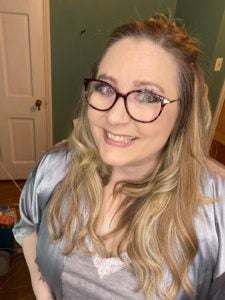 Article By Christina Kaye
Article By Christina Kaye
Many thanks to Book Brush for this opportunity to write this post and help you build a unique and effective brand to assist with your early marketing campaign!
Christina Kaye is an author coach, book editor, and public speaker, as well as the Founder and CEO of Write Your Best Book. She mentors, supports, motivates, and encourages authors to write their best book possible and become their own #bookboss through her author coaching and manuscript editing services, as well as online courses and digital products, such as downloadable resources, templates, and workbooks. Christina Kaye is also an award-winning, bestselling suspense novelist in her own right.
To learn more about Write Your Best Book and how she can help you manifest your writing dreams and start filling your author bucket list, visit www.writeyourbestbook.com.
For daily writing inspiration, tips, and advice, follow on Tik Tok, Instagram, Facebook, Pinterest, and LinkedIn: @writeyourbestbook.
